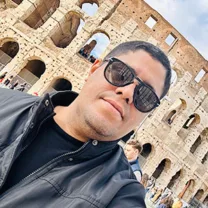In the world of anime and manga , several reports about the misuse of images by artificial intelligence platforms have sparked considerable debate. Recently, David Holz , founder of Midjourney , a San Francisco-based AI platform, admitted in an interview that his company had scraped around 100 million images from the internet, many of them without permission from their creators.
- Manga will be mass translated with AI in the coming years
- Anime that promised to continue, but never happened
According to information from the Petapixel website, Holz revealed in an interview with Forbes that the Midjourney tool uses open data sets available on the internet to train its algorithm.
"It's just a big download from the internet. We use open datasets that are published and train on them. And I would say it's something 100% of people do. We weren't selective," he explained.

Holz also claimed that Midjourney failed to seek consent from living artists or from works still protected by copyright. Holz argues that the lack of a proper method for identifying the copyright of images is a key challenge.
"It would be great if images had embedded metadata about the copyright owner or something. But that doesn't exist; there's no record," he commented.

He also mentioned that Midjourney is studying a form of exclusion, but highlighted the difficulty in identifying whether a person is actually the artist.
“We haven’t found anyone who wants their name removed from the dataset that we’ve been able to find,” he added.
Even though it's difficult to prove, Midjourney uses works by well-known artists such as Eiichiro Oda, creator of "One Piece," and Masashi Kishimoto, among others. Users of the platform can generate AI art based on these artists' works, which has generated a wave of controversy.
What did the anime association NAFCA say?
Recently, the anime association NAFCA met with Magmix and ethical AI developers Anime Chain. Anime Chain argues that artificial intelligence is inevitable and that creators must lead the way before large tech companies monopolize the field.
This situation raises important questions about artists' rights and the ethical use of artificial intelligence in art creation. Ultimately, it becomes clear that a balance must be struck that protects the rights of original creators.
Source: Forbes

